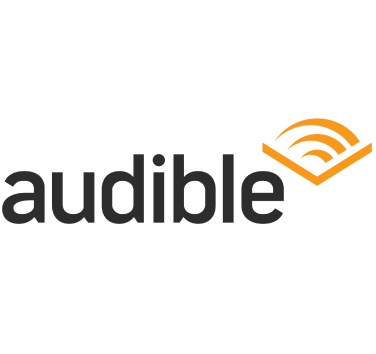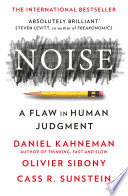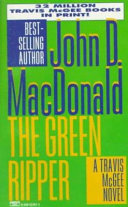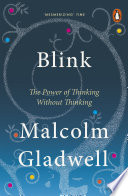Discover the best psychology books for beginners to help you understand the human mind, mental health, biases, and behavior.
Psychology is the scientific study of human behavior and mental processing covering dozens of topics such as human nature, decision-making, and self-control. As it’s such a broad subject that it can be hard to choose which books to add to your reading list
You might also enjoy best Irish authors, best British authors, best American authors.
For more recommendations, you might also enjoy exploring authors like Tom Clancy, best thriller authors, authors like Vince Flynn.
Table of Contents
Open Table of Contents
- Popular Psychology Books for Beginners
- 1. Thinking, Fast and Slow by Daniel Kahneman
- 2. Blink: The Power of Thinking Without Thinking by Malcolm Gladwell
- 3. ADHD: What Everyone Needs to Know by Stephen Hinshaw and Katherine Ellison
- 4. NLP: The Essential Guide to Neuro-Linguistic Programming by Tom Hoobyar, Tom Dotz, and Susan Sanders
- 5. Predictably Irrational: The Hidden Forces That Shape Our Decisions by Dan Ariely
- 6. Influence: The Psychology of Persuasion by Robert Cialdini
- 7. A Brief History of Psychology by Michael Wertheimer
- 8. Flow: The Psychology of Optimal Experience by Mihaly Csikszentmihalyi
- 9. Emotional Intelligence by Daniel Goleman
- 10. The Happiness Hypothesis: Ten Ways to Find Happiness and Meaning in Life by Jonathan Haidt
- 11. The Psychopath Test: A Journey Through the Madness Industry by Jon Ronson
Popular Psychology Books for Beginners
1. Thinking, Fast and Slow by Daniel Kahneman
[Thinking, Fast and Slow](https://amazon.com/dp/B00555X8OA? tag=work089-20) is a psychology book ideal for beginners looking to improve their understanding of decision-making. Daniel Kahneman is a Professor of Psychology and Public Affairs at Princeton and won the Nobel Prize in Economic Sciences in 2002.
Kahneman breaks down the decision-making process into two clear systems, which he labels System 1 and System 2. He argues that the two systems are very different but function in harmony. System 1, he writes, is fast and emotional, resulting in snap decision-making. System 2 is logical and conscious, allowing us to form carefully contemplated decisions.
The book has been widely praised and received several awards, including the National Academies Communication Award. It ranks in the top 5 in several Amazon categories, including Scientific Psychology & Psychiatry, and Business Decision Making Skills.
The book uses many real-life examples to explain the complex processes driving our decisions. It’s fascinating to learn why we make our own decisions. Thinking, Fast and Slowwill be a great addition to your reading list if you want to understand and improve your decision-making.
“A reliable way to make people believe in falsehoods is frequent repetition, because familiarity is not easily distinguished from truth. Authoritarian institutions and marketers have always known this fact.”
Daniel Kahneman, Thinking, Fast and Slow
2. Blink: The Power of Thinking Without Thinking by Malcolm Gladwell
Blink: The Power of Thinking Without Thinking*is a must-read book about the power of quick decision-making. If you ever find yourself procrastinating, reading this book could offer you a bit of self-help based on cognitive psychology.
Malcolm Gladwell has written five New York Timesbestsellers and uses a variety of real-life examples in this book to explore the complex world of decision-making. To explain psychological theories, he focuses on relatable everyday events such as sports, sales, and dating.
Gladwell introduces the reader to the concept of ‘thin-slicing.’ This theory argues that making snap decisions based on limited information can be more effective than those based on hours of contemplation. He proves this theory using examples and then explains how unconscious biases and information overload can ruin the magic of ‘thin-slicing.’
“We have, as human beings, a storytelling problem. We’re a bit too quick to come up with explanations for things we don’t really have an explanation for.”
Malcolm Gladwell, Blink: The Power of Thinking Without Thinking
3. ADHD: What Everyone Needs to Know by Stephen Hinshaw and Katherine Ellison
[ADHD: What Everyone Needs to Know](https://www.amazon.com/dp/B0146Y9T0M? tag=work089-20)*is a must-read introduction to ADHD for anyone interested in this particular neurodiversity. The book is appropriate for psychology students as it reads like a textbook. However, it’s also light on jargon, so non-students will find it helpful.
Stephen Hinshaw is a globally respected expert on ADHD, while Katherine Ellison is a Pulitzer Prize-winning journalist. The book argues that ADHD is often overlooked and misunderstood by the public and medical professionals.
The book offers clear guidelines for coping with ADHD beyond standard psychotherapy. It provides a clear guide for parents, teachers, and friends who want to improve their interaction with people with ADHD. If you enjoyed our guide to the best books on psychology for beginners, we have many more scientific books round-up that you can check out such as the best books for quantum physics).
“That said, ADHD doesn’t fit in a nutshell. It is a complicated condition of variable origins and dynamics,”
Stephen Hinshaw and Katherine Ellison, ADHD: What Everyone Needs to Know
4. NLP: The Essential Guide to Neuro-Linguistic Programming by Tom Hoobyar, Tom Dotz, and Susan Sanders
NLP: The Essential Guide to Neuro-Linguistic Programming*is a technical guide to communication and personal development method known as Neuro-Linguistic Programming (NLP). This communication system is designed to improve our understanding of language patterns to improve numerous facets of our lives. Tom Hoobyar, Tom Dotz, and Susan Sanders are all experts in various areas of developmental psychology. In this book, they build on the pioneering work of Richard Bandler and John Grinder from the 1970s that introduced the world to NLP.
The authors break NLP into three sections that outline how techniques like visualization, anchoring, and reframing can overcome anxieties and fears. The authors add a personal touch to the book by detailing their personal stories of success with NLP. For example, Hoobyar shares how his daughter overcame anorexia using NLP.
This is a must-read if you’re looking for a self-help book explaining how NLP works and how you can implement it into your own life. It received plenty of positive reviews and is available as an audiobook.
“This essential guide provides you with multiple ways to create and maintain motivation to keep you moving forward toward your goals.”
Tom Hoobyar, Tom Dotz, and Susan Sanders, NLP: The Essential Guide to Neuro-Linguistic Programming
5. Predictably Irrational: The Hidden Forces That Shape Our Decisions by Dan Ariely
[Predictably Irrational: The Hidden Forces That Shape Our Decisions](https://amazon.com/dp/B002C949KE? tag=work089-20) investigates the psychology that drives irrational decision-making. Dan Ariely focuses his work on the irrational behavior of consumers through the prism of traditional rational choice theory.
As a Psychology and Behavioral Economics Professor at Duke University, Dan Ariely often focuses on bridging psychology and economics. One of the most interesting areas explored by Ariely is consumers. The book is broken down into 15 chapters that touch on different decision-making methods and case studies looking at situations where people often make irrational choices.
He argues that contrary to popular belief, we are not rational consumers. Many purchase items based on irrational emotions instead of concepts of quality and value. Ariely concisely merges economics and psychology to explain irrational consumer behavior. This book is a must-read if you’ve ever wondered why you spend money on seemingly overpriced useless items.
“Even the most analytical thinkers are predictably irrational; the really smart ones acknowledge and address their irrationalities.”
Dan Ariely*, Predictably Irrational: The Hidden Forces That Shape Our Decisions*
6. Influence: The Psychology of Persuasion by Robert Cialdini
Influence: The Psychology of Persuasion*is a business and marketing book that can essentially be treated like a psychology course that explains why people say yes. While some pressure-selling psychology techniques show no interest in ethics, this book focuses on being ethically persuasive.
Robert Cialdini is an expert in the science of persuasion. He is an American psychologist and Professor Emeritus at Arizona State University. Cialdini has identified six of what he calls ‘“weapons of influence” that, when understood correctly, can be applied to marketing campaigns). The book is broken into six sections, each explaining a “weapon.”
Throughout the book, Cialdini uses experiences from his own life and case studies to illustrate the functionality of his persuasion tools. If you’re a copywriter or marketer looking to improve the persuasiveness of your copy, consider adding this title to your reading list.
“Often we don’t realize that our attitude toward something has been influenced by the number of times we have been exposed to it in the past.”
Robert Cialdini, Influence: The Psychology of Persuasion
7. A Brief History of Psychology by Michael Wertheimer
[A Brief History of Psychology](https://www.amazon.com/dp/1848728751? tag=work089-20) is the perfect introduction to psychology for new learners of the subject. The book provides a solid historical account of modern psychology, including psychoanalysis and clinical psychology. Michael Wertheimer was a Professor Emeritus at the Department of Psychology and Neuroscience, University of Colorado at Boulder. He earned a Ph.D. in experimental psychology from Harvard University.
The book discusses the ideas of some of the most notable psychologists ranging from ancient Greek thinks to 20th-century Nobel Prize winners. Furthermore, the dedicated chapter on applied psychology is excellent for beginners. As you’d expect from a professor’s writing, this book includes a glossary and materials you’d expect to find in a psychology textbook.
“Often, in great discovery, the most important thing is that a certain question is found.”
Michael Wertheimer, A Brief History of Psychology
8. Flow: The Psychology of Optimal Experience by Mihaly Csikszentmihalyi
Flow: The Psychology of Optimal Experienceis a guide to flow, which refers to the mental state during which a person is completely immersed in an activity. Time passes differently when we are in the flow, and our brain is flooded with positive feelings. Mihaly Csikszentmihalyiis the father of flow theory. He was born in Italy to a Hungarian father and witnessed the suffering of Europeans during World War II, which pushed him toward the field of psychology**. **
Csikszentmihalyi argued that we enter a state of flow when our skills and abilities perfectly meet the requirements of a challenge. You may be able to relate to this concept when you think of a sport you enjoy playing or a hobby that both challenges and rewards you, such as writing. This book acts as a guide to achieving flow. It outlines how to get into the flow more often by setting clear goals, acting on feedback, and committing to activities.
“Enjoyment appears at the boundary between boredom and anxiety, when the challenges are just balanced with the person’s capacity to act.”
Mihaly Csikszentmihalyi, Flow: The Psychology of Optimal Experience
9. Emotional Intelligence by Daniel Goleman
[Emotional Intelligence](https://amazon.com/dp/B000JMKVCG? tag=work089-20) is a psychological theory developed to expand readers’ ability to understand their feelings and thoughts. By increasing your emotional intelligence, Daniel Goleman argues that your quality of life will also improve.
Goleman holds a Ph.D. in Psychology from Harvard University and has spent several decades working in various fields of psychology. He breaks the concept of emotional intelligence into five clear sections.
-
**Self-awareness: **A person’s capacity to recognize emotions, values, and weaknesses.
-
**Self-regulation: **A person’s capacity to control their impulses and feelings.
-
**Motivation: **A person’s capacity to pursue goals and maintain high levels of persistence.
-
**Empathy: **A person’s capacity to understand the feelings of others.
-
**Social skills: **A person’s capacity to build, manage and maintain relationships.
“The intuitive mind is a sacred gift and the rational mind is a faithful servant,” Albert Einstein once said. “We have created a society that honors the servant and has forgotten the gift.”
Daniel Goleman, Emotional Intelligence
10. The Happiness Hypothesis: Ten Ways to Find Happiness and Meaning in Life by Jonathan Haidt
The Happiness Hypothesis: Ten Ways to Find Happiness and Meaning in Life combines ancient and modern cognitive psychology. The theories and concepts explored in the book relate to various ideas of happiness and meaning.
Jonathan Haidt is a social l psychologist at New York University’s Stern School of Business. He has written about various topics, including morality, capitalism, populism, and ethics. This book is an interesting combination of psychology and philosophy.
Haidt builds on the ideas of some of history’s greatest ancient thinkers, including Buddha and Plato. He adds his ideas and popular modern psychological theories to build his theory on happiness. Haidt has also held several Ted Talks that will give you a feel for his style.
“Our moral thinking is much more like a politician searching for votes than a scientist searching for truth.”
Jonathan Haidt, The Happiness Hypothesis: Ten Ways to Find Happiness and Meaning in Life
11. The Psychopath Test: A Journey Through the Madness Industry by Jon Ronson
The Psychopath Test: A Journey Through the Madness Industry is a psychology book on psychopathy. This is a deep dive into the fascinating but often tragic world of mental illness and the lives of people who treat those suffering from mental health disorders.
Jon Ronson is a journalist and documentary filmmaker who has won multiple awards for his work that ranges from politics to popular culture. Although he isn’t a psychologist by training, in this book, he interviews professionals in the mental health industry to explain psychopathy. He interviews several psychopaths and psychiatrists, including Rober D. Hare, who created the Hare Psychopathy Checklist. Hare’s checklist is used worldwide to diagnose patients.
Ronson also interviews people who claim to have been falsely diagnosed as psychopaths and business leaders who show psychopathic tendencies. He dives into the controversial world of mental health treatment, where experts have criticized several methods that continue to be used today.
“Suddenly, madness was everywhere, and I was determined to learn about the impact it had on the way society evolves. I’ve always believed society to be a fundamentally rational thing, but what if it isn’t?”
Jon Ronson, The Psychopath Test: A Journey Through the Madness Industry

